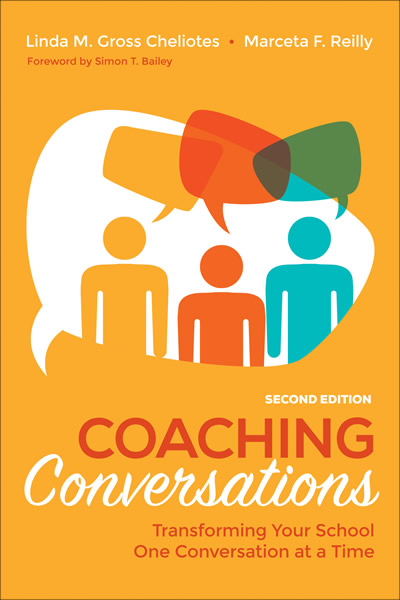 One of the most sincere forms of respect is actually listening to what another has to say.
One of the most sincere forms of respect is actually listening to what another has to say.
Bryant H. McGill
Marshall Goldsmith has written a book entitled, What Got You Here, Won’t Get You There. His premise is that the skills that get you noticed as a leader sometimes don’t serve you well when you actually get the new title.
This is certainly true when it comes to listening skills. Most of us believe we are good listeners. But listening is more than hearing the words someone is speaking. It is making an effort to understand the underlying meaning and the emotion that surrounds it.
Listening in this deep way is especially important for coaches. However, we may have developed some bad conversational habits that actually get in the way of listening deeply and evoking the kind of “sacred trust” we want to create with our clients.
The kind of listening that often gets us noticed — having quick responses, tossing out solution ideas, making clever jokes about things we don’t like, telling hilarious stories that piggy-back on someone else’s — truly becomes a hindrance when we are wanting to build trust and rapport.
Let me describe four bad listening habits that are actually barriers to becoming the kind of committed listener you want to be.
Judgment Listening: When listeners have an opposing viewpoint, they often engage in Judgment or Criticism listening. The listener focuses attention on hearing flaws in what is being said, hoping to discredit the speaker. It shuts down discussion and sends the message that only one person has the “right” answer.
Autobiographical Listening: This is also called “piggybacking” or “highjacking” a conversation. It occurs when one person discusses an activity or idea that stimulates an association in the listener’s brain to think of a similar experience. The listener’s attention wanders and often responds with his or her own personal story. The listener may be trying to establish rapport or show sympathy, but it really takes the focus away from what the speaker has to say, and instead, moves the spotlight to what the listener’s story is.
Inquisitive Listening: This occurs when a listener becomes overly curious about irrelevant portions of the speaker’s story, instead of listening to the essence of the message. This is particularly true when a speaker is highly emotional when telling a story. An inquisitive listener may pepper the speaker about details when the speaker only wants to be heard — not “fix” the problem. Listening without feeling any obligation to question or respond, often helps speakers move beyond their negative emotions without any advice from the speaker.
Solution Listening: This is when the speaker is eager to provide a quick and helpful solution even when the speaker has not asked for such advice. Solution listeners may too quickly filter their thinking as they focus on the parts of the conversation that support their solution idea, and miss other important, relevant points the speaker is trying to make. Solution listening makes the speaker feel like their perspective is being diminished or ignored
Do you hear yourself in any of these scenarios? Is there a bad listening habit you are particularly prone to?
I believe that committed listening is a rare gift we give others. It is not only hearing the words a person says, but also listening for the deeply held beliefs and passions embedded in the meaning. When people feel heard at a soul-deep level, trust and sacred relationships emerge.
So as another year begins, how do you get from listening at the surface to listening at this soul-deep level? It can start by being intentional about avoiding these four bad habits of listening. What new skills will you practice?









Comments on this entry are closed.